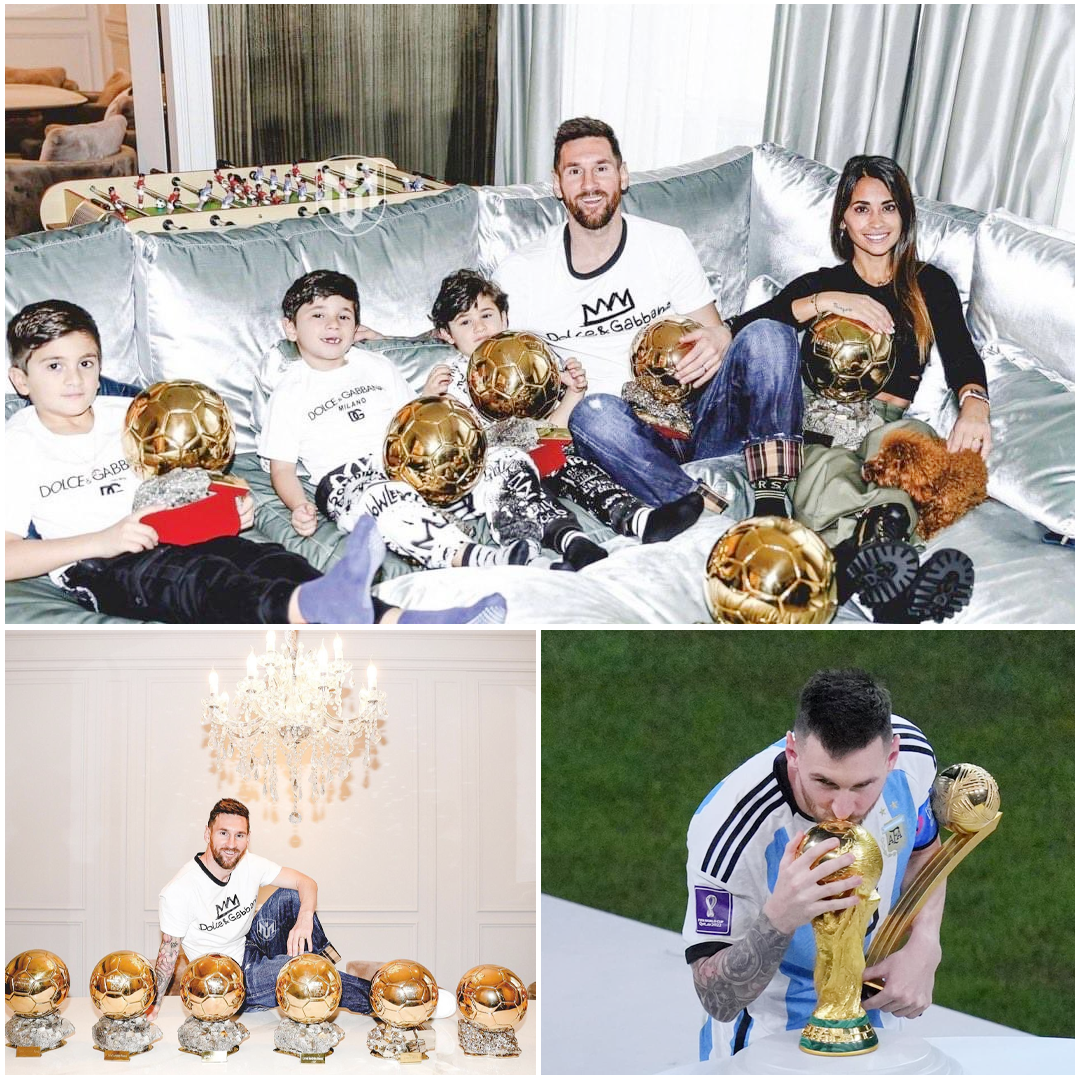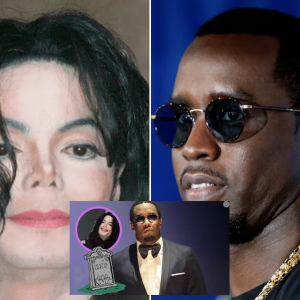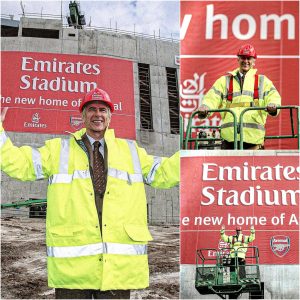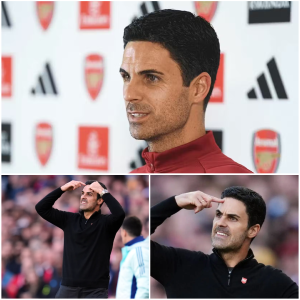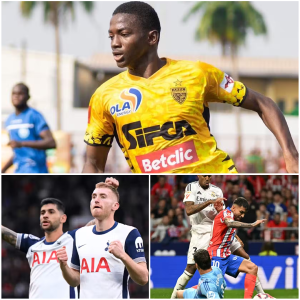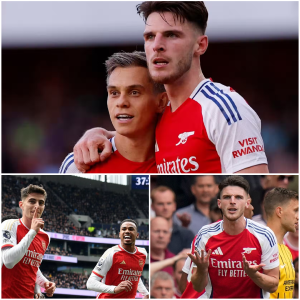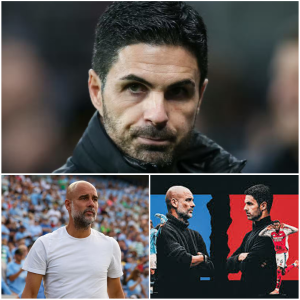In an exclusive interview with France Football after winning his seventh Ballon d’Or, Lionel Messi said he just wants to be one of the best.
 Messi poses with seven Ballon d’Or winners, in an interview with France Football magazine in early November 2021. Photo: France Football
Messi poses with seven Ballon d’Or winners, in an interview with France Football magazine in early November 2021. Photo: France Football
– What is the most memorable lesson you received from your parents as a child?
– I grew up in a working-class family. My father worked all day, and we lived in a normal neighborhood. But thank God, we didn’t lack anything. My parents taught me respect and humility. I grew up with these lessons. When I arrived at Barca at the age of 13, I found the same lessons at La Masia.
– Neymar offered you the number 10 shirt when you came to PSG, why did you refuse?
– Number 10 belongs to Neymar. I am a new player and I came here to support the team. I knew Neymar would do that because I know him. We have played together for a long time at Barca and are friends. I think it would be fair if Neymar kept the number 10. That is why I took another number, and I like number 30.
– In the match against Man City at Parc des Princes, you lay down to block a free kick. Some people said: “Messi doesn’t need to do that”. What do you think?
– We had to. We were all hungry for victory and no one was lying down. I was nearby and decided to lie down. It was nothing. We all had to give something to achieve the desired result.
– As one of the greatest players in history, you always refused to consider yourself the best. Do you think differently now, with seven Ballons d’Or?
– I have never said I am the best, I have never even thought about it or tried to get used to this comment. I just need to be among the best players in the world. This was something I could never have imagined before, and I did not dare to dream of. But, I do not know how to say it without being misunderstood. It is not that I do not care, but I do not attach importance to being the best player or not. Whether I am the best or not, it does not change anything for me. I have never tried to be the best player.
– When you were 10 years old, how did you learn that you were deficient in a growth hormone? How did you take that news?
– I remember going to the doctor with my mother for an hour or two. When I found out I had this problem, I have to say I didn’t feel anything special. I don’t know if it was because I was young and didn’t understand. They told me about the treatment, which was that I had to have injections every day. One in the thigh, and the second in the other thigh. The treatment didn’t stop me from doing anything. I could continue playing football and living the same life. So I got through it.
 From left to right: Messi when he first started playing football, as a young player at Newell’s Old Boys, and as a young player at Barca. Photo: Credihealth
From left to right: Messi when he first started playing football, as a young player at Newell’s Old Boys, and as a young player at Barca. Photo: Credihealth
– At that time, did you ever think that your professional football career might be threatened?
– Never. I just kept doing what I was doing, of course I had to get through this treatment first. It became a normal part of my life. There were days when I went to my friend’s house and brought the injections that I needed. They had to be kept cold, so I put them in the fridge at my friend’s house as soon as I got there. Everyone knew that I would have to have injections every night. So the treatment was not difficult.
– In 2000, your family could not afford the treatment. And you left Argentina to try your luck at Barca. How did you feel when you left Rosario, part of your family and friends at the age of 13?
– I was always concerned about the treatment, but it started to cost too much. Newell’s said they would help my family, but in the end they wouldn’t give us any money. The situation was complicated. Then the opportunity to move to Barcelona came up. I remember very clearly the day my family left and said goodbye to everyone close to them. It was an emotional moment and we had lived together there all our lives. Although it was clear that I wanted to go to Barcelona, it was very difficult to say goodbye to Rosario.
When I first started playing for Barca, I broke my leg and couldn’t play for three months. My mother, one of my brothers and my sister had to go back to Argentina. Being apart from each other made things even harder. But I never thought about going back to Argentina. I never thought about going back to Rosario. My first year at Barcelona was complicated. I couldn’t play for the first few months because my transfer papers hadn’t arrived from Newell’s. I could train but I couldn’t play.
– Do you think you are a role model for everyone?
– I don’t know if I’m a role model. I don’t like to be a role model, or to give advice to others. I had to fight for my dream. At first, I wanted to be a professional player. Then I tried to surpass myself and achieve new goals year by year. It also depends on luck, on God. I think God chose these things to happen to me.
– In the 2011 Champions League round of 16 against Arsenal, you scored a goal by flicking the ball over goalkeeper Almunia’s shoulder before shooting. Do you often repeat goals like that in training, or is it just instinct?
– No, it’s my instinct. It’s hard to prepare for goals like that in training every day. It doesn’t happen often. I’ve always tried to train and improve every day, but goals like that come naturally. I’ve never changed my style of play, since I was very young. Some moves come naturally to me, depending on the conditions of the game. That day, I felt that juggling the ball over the goalkeeper was the best way to score, so I did it that way.
– Many of your goals are remembered for their beauty, such as the one you beat Jerome Boateng to score past Manuel Neuer against Bayern Munich in the 2015 Champions League semi-final. Is the beauty of a goal important to you?
– No, I have no problem scoring ugly goals. A striker has different approaches to scoring goals. I am not a striker, but I usually play in an attacking position. That is why I score different goals.
– People say you are shy and quiet. Do you think people don’t understand you?
– I can be a different person when I am with people I trust, like friends and family. Outside of these close relationships, I am more shy and have difficulty feeling comfortable. At least it takes me longer to settle in. But people around me see me as a normal person. When I am in a good mood, I try to enjoy every moment.
– You have been criticised in Argentina for lacking leadership qualities. People have also compared you to the late Diego Maradona – who had a strong personality. Does that hurt you?
– No. No. I appreciate that. I have never compared myself to Diego, and I don’t care about such comparisons. And criticism has bothered me many times before. I have had really difficult times with the team, but not because of football-related criticism. I have been attacked in stadiums for reasons that have nothing to do with football.
– You always seem very calm. Have you ever lost your temper in the dressing room, or on the field? Do you remember the last time you lost your temper? With whom and for what reason?
– It’s true that sometimes I get angry. But I won’t reveal what happens in the dressing room. What happens there, stays there. The relationship between everyone in the team creates the strength of the whole team. We get angry with each other as a way to progress. I and other players can get angry. But when the whole team is united and working towards a common goal, one person getting angry is not a problem, on the contrary, it helps us move forward.
– Is it easy to be Messi’s teammate?
– I have to ask the others. I don’t know if it’s easy or not. Those who know me will know what I’m like. Those who don’t know me will learn to get used to me little by little. The youngest players may find it more difficult. But once they get to know me, they will be very comfortable.
– For you, what is perfect freedom?
– On the pitch, I always have the freedom to move as I want without having to stick to a fixed position. Every coach has allowed me to move freely, in places where I can be dangerous for the opponent. Off the pitch, my freedom is when I spend time with my family, my wife and children. I always enjoy that time.

– We often feel like you are isolating yourself in a state of stress?
– I don’t feel that way at this point in my career. I’ve been playing for many years. I don’t know if I’ve ever felt pressure. It’s more like a commitment to achieve a certain result at a certain time. But I’ve always enjoyed living and facing pressure.
– In the 2009 Champions League final, despite being small, he scored a header against the giant Edwin van der Sar?
– At that moment, the goal came like this. Xavi passed it to me because he knew that even though I was short, I could still head the ball. Xavi had seen me heading the ball a lot in training, and we talked about it a lot in the dressing room. But we never imagined that I would score a goal like that with my head.
– Your father said that when you were little, you got into trouble after losing a match to your brother in front of the house. You didn’t want to rest until you won. Do you always react badly when you lose?
– Yes, I have to admit. Ever since I was a child, I have never liked to fail. I accept failure, but I don’t want to get used to it. I have lost a lot and always feel pain when I fail or don’t achieve my goals. I can’t get used to failure and it will affect me for a long time. But I have to tell myself that I have another chance to try again and win.
– After each loss, how long can you stay silent without talking to anyone?
– It’s different now. Since I had my children, every time I come home, they help me a lot. I often forget what happened during the match. But it’s true that before I had my children, I was only with Antonella, there were times when I spent time locked in my room after a defeat.
– In 2006, you won the Champions League for the first time. While your teammates were celebrating on the pitch, you were alone in the dressing room, upset that you didn’t get to play in the final. You were only 19 at the time and had played 30 games that season, so why didn’t you celebrate your first European title?
I regret that.
At that moment, all I could think about was that I wasn’t playing. At least I wanted to be on the bench for the final. I was disappointed, but I deeply regretted hiding in my room. We won the Champions League and I wasn’t sure if that would happen again, because it’s so hard to win. Then, fortunately, I got the chance to win the Champions League again. This time, I enjoyed the victory.
 Messi and Ronaldo in an El Clasico match in La Liga in 2011. Photo: Eurosport
Messi and Ronaldo in an El Clasico match in La Liga in 2011. Photo: Eurosport
– In the past, whenever Cristiano Ronaldo scored in La Liga or the Champions League, he would often score more goals in the next match. It’s hard to believe that it’s just a coincidence. Do you look at the performance of your competitors?
I always want to surpass myself and not look at what others can do. With Cristiano, we competed for many years in the same league. It was great and helped us both grow, but not necessarily to compete with each other. I just wanted to surpass myself to be the best, not to be better than others.
– Thierry Henry once said: “Sometimes I wonder if Messi is human.” Do you understand what Henry means?
– I shared a dressing room with Titi Henry for many years, and won important titles together. We had a good relationship for many years, and he liked me very much. That’s why he said that.
– A scientific study describes you like this: “Messi has the ability to analyze and solve situations faster than normal”. Do you feel like you have some kind of superpower?
– I don’t know. I play the same way I did when I was five or six. Of course, from a young age I was always trying to improve and not being satisfied with what I had. God gave me a gift, and I do everything in my power to make the most of it.
– Many players like luxury cars, parties and social events. But you like to stay at home, spend time with your family and go to familiar places. What do you think when people consider you a “weird” player?
– I think there are many players like me. I like to spend time at home, and try to make it a nice place for me and my family, but also to welcome friends. I am happy and comfortable at home. I have always liked routine and order, both in my private life and at work. I was like that when I was a child. I think that has helped me achieve everything I have now.
– It’s rare to see a football star publicly announce his relationship with his childhood girlfriend. Is Antonella a place for you to escape from the outside world?
– My wife is obviously very important to my life. Antonella is not only the mother of my children, but also my companion from the early days of my career. She understands me with all her heart, and knows how to treat me.
– In Argentina, there is a popular saying: “I’m busy today because Messi is playing”. Do you know how people look at you?
– I am always grateful for the way people have treated me around the world. I have been lucky enough to travel everywhere, and wherever I have gone I have been warmly welcomed. Recently I have enjoyed the most beautiful moments with the Argentine people and the team, with the Copa America championship in July 2021.
– Your friend Javier Mascherano once said: “I can’t be Lionel Messi. I can’t stand it. It takes a special person to do that.” Is it difficult to become someone like Messi?
– I’ve been Messi for 34 years, so I’m getting used to it. I’m happy with everything I’ve been through.
Although I have to admit that sometimes I would like to leave the house unnoticed, to enjoy private moments with my family. But I don’t complain. On the contrary, I am always happy to receive a compliment, a smile or a request to take a photo together. I am used to it. It has become natural to me. Everything is fine.
